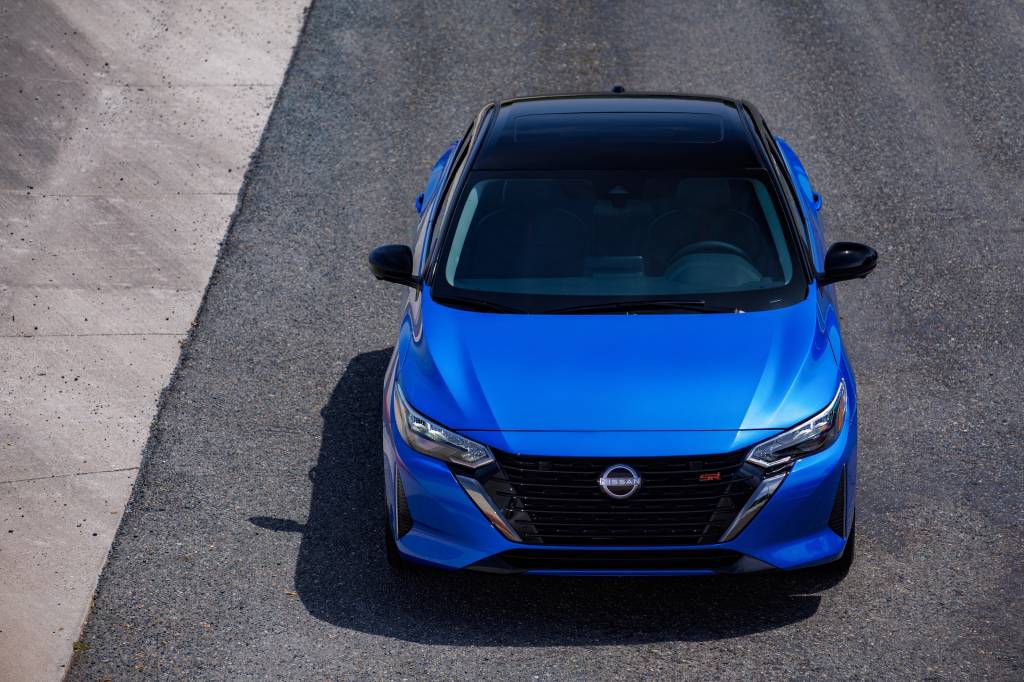- Nissan has tapped AI to check for paint defects on new cars
- AI has improved paint defect detection by 7%, according to Nissan
- Nissan said AI is meant to enhance detection, not replace humans
Nissan is using artificial intelligence to help spot paint imperfections on cars produced at its U.S. assembly plants.
About three years ago, the automaker started using the AI-based AUTIS Surface Verification System, which has improved the rate of defect detection at the Smyrna, Tennessee, plant by 7%, according to Nissan. The system uses high-resolution cameras to take 15,000 pictures of each vehicle as it exits the paint booth. Those pictures are then analyzed by AI software to find flaws in the paint.
“The human eye can spot 85%-95% of flaws, but AUTIS identifies over 98%,” Travis Fritsche, a Nissan paint process engineer, said in a statement. Technicians still verify potential paint defects flagged by the system using monitors and dedicated, wrist-worn company smartphones. But the AI assist reduces eye fatigue and allows for more time to correct paint issues, according to Nissan.

Nissan uses AI to detect paint flaws
“Technicians are critical for confirming and categorizing defects,” Nissan new model paint engineer Rod Lynch said in a statement. “AUTIS is a tool to enhance their work, not replace it.”
The paint-inspection process was also partially automated to begin with. Nissan began using laser-equipped robots to scan for paint defects in 1985. Those first robots could identify paint flaws as small as 0.3 mm in 45 seconds, while the AUTIS system can identify flaws just 0.2 millimeters in size in less than half that time, according to Nissan.
The AI-based system also builds a library of confirmed defects that it can use for future reference to improve its own performance, Nissan claims, adding that this same library can be studied by engineers to address any issues with paint processes for specific vehicles and colors.

2024 Nissan Sentra
AUTIS has so far evaluated over 500,000 vehicles at the Smyrna plant, according to Nissan. That plant has an annual production of over 640,000 vehicles, according to a 2022 fact sheet. The same paint-flaw detection system is also used at plants in Canton, Mississippi, and Aguascalientes, Mexico. Those three plants assemble most of Nissan’s current lineup, including the Altima, Frontier, Kicks, Leaf, Murano, Pathfinder, Rogue, Sentra, and Versa.
Other automakers are also experimenting with AI, but primarily by working to add popular AI software to infotainment systems. The 2025 Volkswagen Golf integrates OpenAI’s ChatGPT with its voice assistant, and sibling brand Audi is slated to follow suit. Mercedes-Benz in 2023 announced what it called a beta program for ChatGPT integration, and announced at CES earlier this year it was readying an AI-powered next-generation user interface.
